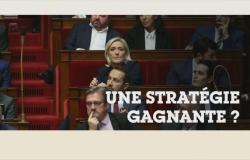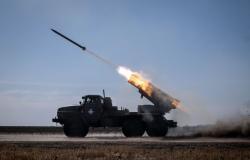Russia's moves to limit grain exports are causing confusion in international markets as the lack of clear instructions from the government creates gaps and potential friction with major buyers, traders said.
Russia, the world's top wheat exporter, has tried to limit grain deliveries to global markets to avoid a surge in prices at home as President Vladimir Putin seeks to combat inflation partly fueled by military spending .
The government did not make an official comment after meeting with grain exporters earlier this month to discuss export restrictions.
The only statement so far comes from the Union of Grain Exporters and Producers of Russia, or Rusgrain, which says it represents companies exporting up to 80% of Russia's grain.
The union said that from now on only Russian grain companies will be able to sell directly to sovereign buyers. The new rules exclude international traders unless they have long-term sales agreements with Russian companies.
A source within the Russian government told Reuters it was fully aware of Rusgrain's actions and that the union was relaying the official message.
“This is an association with which the Ministry of Agriculture has concluded an agreement. They inform the market but do not regulate it. In other words, they transmit certain decisions taken to market players,” he said. said the source.
The move would exclude some large international traders from supplying Russian wheat, although it is not publicly known who can no longer do so, given that the list of approved foreign companies with offtake agreements has not been completed. never been made public.
The government has not officially backed the union's announcements and actions so far and the agriculture ministry did not immediately respond to a Reuters request for comment.
“The market has been confused by numerous semi-official announcements regarding Russia's export restrictions, without authorities issuing detailed regulations,” said a European trader.
Union director Eduard Zernin told Reuters that Russian grain exporters were private companies that “conduct their activities in accordance with legal requirements and established business practices.”
“We do not intend to disclose information regarding our business practices, given current attempts to hinder the supply of Russian grain to countries that need it,” Zernin added, referring to the sanctions. Western countries linked to Russia's military action in Ukraine, which complicate cross-border payments with Russia and hinder the access of Russian companies to international markets.
POTENTIAL FRICTIONS
Confusion over the grain export restrictions became evident on October 22 when Bangladesh, a major new buyer of Russian wheat, held its first international tender since the restrictions were announced.
During this call for tenders, two international traders, Agrocorp and SMC Food DMCC, were among the three participants. They offered grains based on an optional origin that could have included Russian wheat.
Some 24 hours after the tender, the Union of Grain Exporters of Russia sent a letter to Russian traders asking them to comply with the new rules.
In its message, the Union indicates that two of the three companies which participated in the Bangladesh tender were not on its list of foreign traders having concluded sales agreements with Russian companies.
“Our list of buyers does not include Agrocorp and SMC Food DMCC,” the traders quoted the letter as saying.
Reuters was unable to obtain this letter.
The Union confirmed to Reuters that the letter had been sent and that it mentioned Agrocorp and SMC Food DMCC.
“The fact that this warning regarding the Bangladesh tender was sent so quickly and so specifically appears to show that Russia is determined to quickly impose the new system despite the lack of official regulations,” he said. said another international trader.
In addition to export restrictions, the Russian government has already officially increased export taxes on grain and introduced an unofficial minimum export sales price, according to Reuters sources.
The new export restrictions could cause friction with importers, including political allies like Egypt, who are expected to face higher bills for food imports, traders said.
“Arab and African buyers have to pay more for their essential food wheat imports (when shipments are restricted),” said a German trader.






